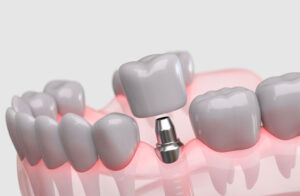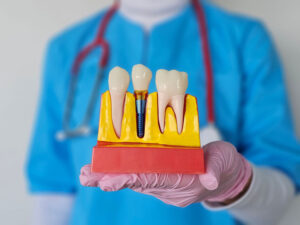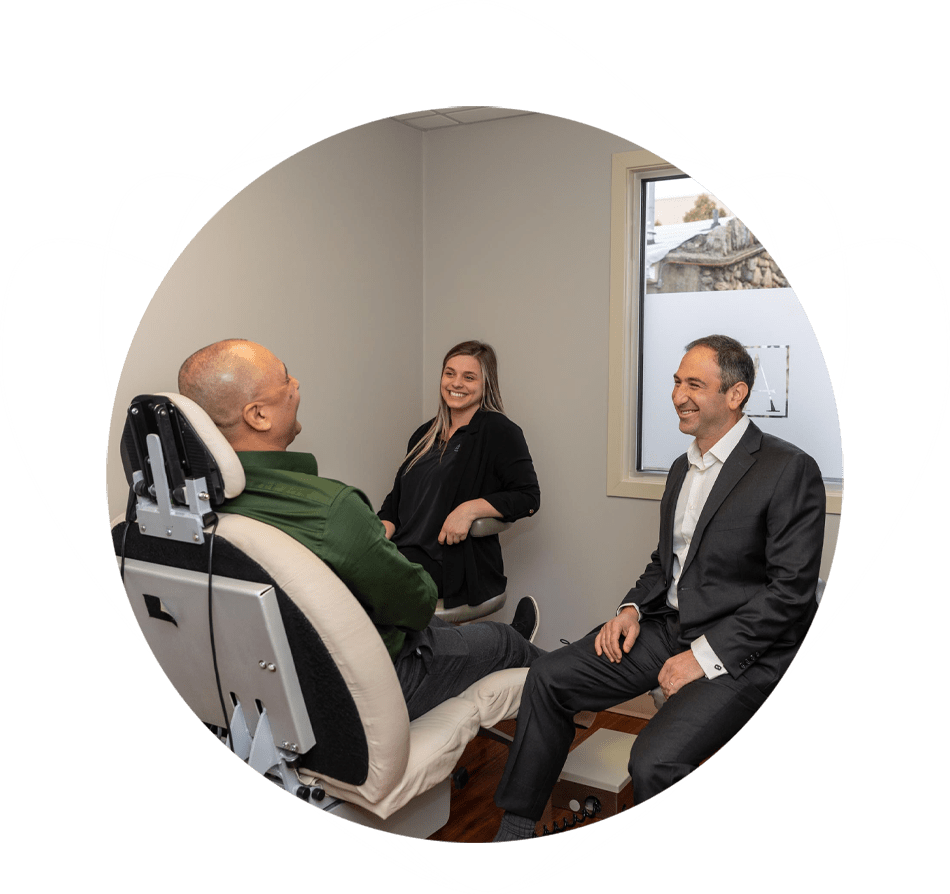Jaw pain is fairly common among those in the United States. Considering that we use our mouths to bite down more than 2,000 times per day, and that the average person can bite down with 170 pounds of pressure, this shouldn’t be very surprising. If you’re experiencing jaw pain on a regular basis, however, or have been accused of grinding your teeth in your sleep, you might wonder when common jaw pain is considered to be more serious.
The temporomandibular joints are located just below the ears on each side of your head. They’re responsible for two forms of joint articulation, teaming up with a complex system of ligaments, muscles, bones, and nerves so that we can speak and chew. TMJ, temporomandibular joint dysfunction or temporomandibular joint disorders, is an umbrella term used to describe various symptoms associated with this joint, including frequent jaw pain, reduced jaw mobility, frequent headaches, and many other symptoms.
If you’ve been experiencing TMJ symptoms, such as jaw pain, this blog is for you.
What to Understand about TMJ
According to the National Institute of Dental and Craniofacial Research, an estimated 10 million Americans have been diagnosed with TMJ. However, that doesn’t include the number of Americans who experience TMJ-like symptoms. Unlike the flu or strep throat, which can be verified by blood tests, TMJ is a complex relationship of symptoms rather than a single condition. Symptoms vary widely among patients in both their severity and their form. While one patient may experience popping or clicking in the jaw, another might experience tinnitus or ringing in the ears.
This means that diagnosis depends on working with an experienced professional, typically a dentist with dedicated training in TMJ.
What Causes TMJ?
Because TMJ is not a singular condition, agreeing on a singular cause has been difficult for researchers. Some blame genetic factors and others blame poor posture. However, there are similarities across some cases, as well as factors thought to increase your risk of developing TMJ, including jaw trauma, bruxism (teeth grinding), and chronic inflammatory arthritis. One commonality in the jaw of TMJ patients is inflamed or irritated tissue around the joint. In more serious cases, the temporomandibular joint could have sustained soft tissue damage.
What Should You Do About Jaw Pain?
If you’ve been recently experiencing jaw pain or other TMJ-related symptoms, the important thing is to seek help. The sliding scale of TMJ allows for treatment at any stage, and seeking treatment early can even prevent more serious symptoms later. The earlier you get treatment, the more likely you can experience relief with noninvasive treatments. The first step toward treatment is scheduling an appointment with your local TMJ Dentist.
After your appointment, you dentist can suggest treatment, such as oral appliances designed to reposition your jaw during sleep in order to promote healing and prevent bruxism.
If you are suffering from jaw pain in the Mohegan Lake, New York, area please contact Advanced Dentistry of Mohegan Lake today at (914) 526-2144 to schedule a neuromuscular dentistry consultation.





